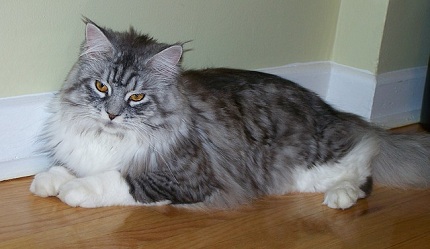Why Do Older Cats Howl at Night?
Why Do Older Cats Howl at Night?
Even though night howling is not exclusively linked with older cats, yowling at night can be a sign of some serious illness in geriatric cats. Until recently, it has been considered as a sign of dementia or something like Alzheimer’s disease. This disorder is now known as CDS or Cognitive Dysfunction Syndrome. Cats who suffer from CDS are usually anxious and need extra comfort that can alleviate symptoms of CDS. Namely, these cats have poor sleep patterns and need warmth during the night. Because of that, it could be a good idea to add an extra blanket for a cat bed. However, feline experts reveal that older cats can howl because of other illnesses like sensory decline. Frequently, older cats that experience deteriorating in vision become disorientated and nervous. To comfort them, experts suggest a nightlight to be always on to help them move at dark. The article “Howling Cat Can by Symptom of Disease” describes several other reasons that explain why older cats howl at night.
Why Do Older Cats Howl at Night?
Elevated blood pressure of a long-standing nature can cause cats to wander through the house vocalizing. We think this is because chronic high blood pressure is uncomfortable. This discomfort leads to difficulty sleeping, and excess vocalization can be the result.
Kidney disease can cause high blood pressure and, conceivably, excess vocalization. However, these cats usually have other symptoms that show up first, including increased water intake, increased urination and decreased appetite.
Another possibility is hyperthyroidism. This disease is caused by tumor development in or on — or both — the thyroid glands. These are benign tumors, but they are functional and produce excess thyroid hormone.
Apart from the following reasons, cats, not only older ones can yowl because of pain. If we remove other reasons for cats howling, such as heat cycle, moving to a new house, or out of boredom, we need to be aware that pain can be a number one cause. For that reason, excessive vocalization or howling is not the phenomenon that should be ignored. Every night howling should be taken seriously because it can indicate a treatable illness. What we need to do immediately, if our efforts to comfort a cat fail, is to visit a vet. Instead to complain about cat’s yowling, we should be grateful because it can help us reveal the potentially harmful condition of our cat. The night howling can, in fact, save a cat and help it live longer. Therefore, if older cats howl at night, the first thing we need to do is to visit a vet.










